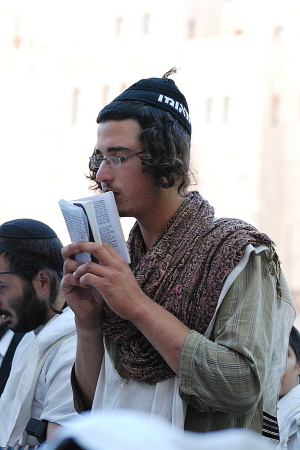SUNSET WEDNESDAY, JULY 26: Three weeks of reflection prepare men and women for this, the saddest day in the Jewish calendar: the Ninth of Av, known as Tisha B’Av. Observant Jews who are healthy enough to undertake the 25-hour fast will follow five traditional prohibitions: No eating or drinking; no bathing; no use of creams or oils; no leather shoes; no marital relations. The final meal consumed before the start of the Tisha B’Av fast traditionally consists of a hard boiled egg and a piece of bread, dipped into ashes.
The desolate tone of Tisha B’Av is in recollection of the tragedies that befell the Jewish people on the Ninth of Av—including, most prominently, the destruction of the First and Second Temples in Jerusalem. The ark—the cabinet where the Torah is kept, in the synagogue—is draped in black; the book of Lamentations may be read.
9 AV: FROM THE FIRST TEMPLE TO THE FINAL SOLUTION
Historically, the First Temple was destroyed on 9 Av 586 BCE; the Second, on 9 Av 70 CE. The First Temple was destroyed by the Babylonians; the Second Temple, by the Romans. According to Jewish tradition, 9 Av is associated with other tragic milestones, as well, which have been added to this annual day of remembrance.
Also on 9 Av: The Romans quashed Bar Kokhba’s revolt and destroyed the city of Betar, killing more than 500,000 Jewish civilians; Jews were expelled from England in 1290 CE; Germany entered World War I, the aftermath of which led to the Holocaust; and SS commander Himmler formally received approval from the Nazi Party for “The Final Solution.”
from Religious Holidays https://ift.tt/yZaUGsn

 :: Unlock Your Success with Our Digital Course →
:: Unlock Your Success with Our Digital Course →














No comments:
Post a Comment